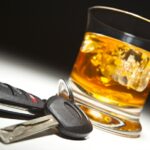
Your attorney can help you with the specific questions you may have about your case. But if you’re wondering about any of the general issues associated with driver’s license restoration in Michigan, here are the answers to some FAQs that may help.
Will I get a full license?
Eventually, you can get your full driver’s license reinstated through the Secretary of State, if you follow all of the steps and complete the lengthy process. However, every driver in Michigan who has had their license fully revoked needs to start off with a restricted license for a year. You can either get a restricted license through a hearing with the Secretary of State or be granted one through sobriety court. You will be required to use an interlock device in your car.
Once you’ve driven with a restricted license for at least a year, you can attend a hearing to get your unrestricted license. But you must meet all the criteria throughout the process in order to achieve this goal.
Will I have to install an interlock device?
An interlock device is basically a breathalyzer testing mechanism that is installed in your vehicle and connected to the ignition. Each time a driver with a restricted license goes to start their vehicle, they will need to breathe into the device to confirm that they’re not intoxicated. Only after that will the vehicle be allowed to start. The device also collects data from each use. So, for example, if you attempt to start the vehicle while intoxicated, it will provide that information to the Secretary of State and harm your chances of getting your full license reinstated or cause you to lose your restricted license.
According to Michigan state law, all drivers who have had their license revoked due to multiple DUIs must drive for a minimum of a year with a restricted license before becoming eligible for full reinstatement. So yes, you will need to have an interlock device installed if you want to go through the license reinstatement process in Michigan. This is true whether you get your restricted license granted through sobriety court or through a Secretary of State hearing.
It has been a long time since my DUI’s, so this is a “no brainer” right?
It is certainly a good thing for your case that you haven’t had any recent DUIs. However, your current sobriety and ability to prove your likelihood of future sobriety are more important. If all that mattered was the length of time since your DUIs, then you would likely have a suspended license rather than a revoked license. With a suspended license, you can simply go to the Secretary of State and apply for reinstatement once a certain time period has passed. However, a revoked license means you have to actually prove your case. It is not automatic. So they look at a lot of other factors to determine your ability to remain sober and stay safe on the road.
In order to actually get your Michigan driver’s license reinstated, you’ll need to prove that you’ve been sober for at least a year, and that your likely to remain sober. Things like treatment, AA, changed life style and supportive family and friends are important factors. The fact you haven’t got any DUI’s in a long time is helpful but is not enough to prove all of these factors. You need to present other evidence, witnesses, and testimony to support your claims.
Because my life is so hard without a drivers license, If I just explain this to them it will help me get a license, right?
This line of thinking is incorrect. Your personal need for a license doesn’t really have anything to do with your ability to win your case. All the Secretary of State really looks at is the legal criteria for the case, which has more to do with your ability to operate a vehicle safely moving forward, your length and quality of sobriety and whether you are like to remain sober in the future.
While it may be true that you really need your driver’s license back, that need simply is not central to the case. However, it can be used to show how motivated you are to remain sober so you can maintain your driving rights. You still need to meet all of the criteria and prove that you’ll be able to remain sober and safely operate a vehicle going forward.
I know somebody that has 10 DUIs and got their license back no problem. Therefore, because I only have two DUIs shouldn’t I easily be able to get my license back?
Comparing your situation to someone else’s is not very helpful, as there are so many factors involved that can affect the outcome of the case. You need to consider the quality and length of sobriety, completion of treatment, involvement in support groups like AA, your identification and ability to address triggers, quality of witnesses and evaluation, and how well you do at the actual hearing.
Though your case may have some commonalities with others, no two cases are exactly alike. You may know someone who received way more DUIs and got their license back. But they may have been able to prove successful treatment and sobriety support effectively. And that’s what the Secretary of State or sobriety court officer is really there to evaluate. So license hearing outcomes depend on a lot more factors than simply how many DUI’s someone has. While fewer DUI’s is good, there are many other factors that can have an impact on a license hearing.

